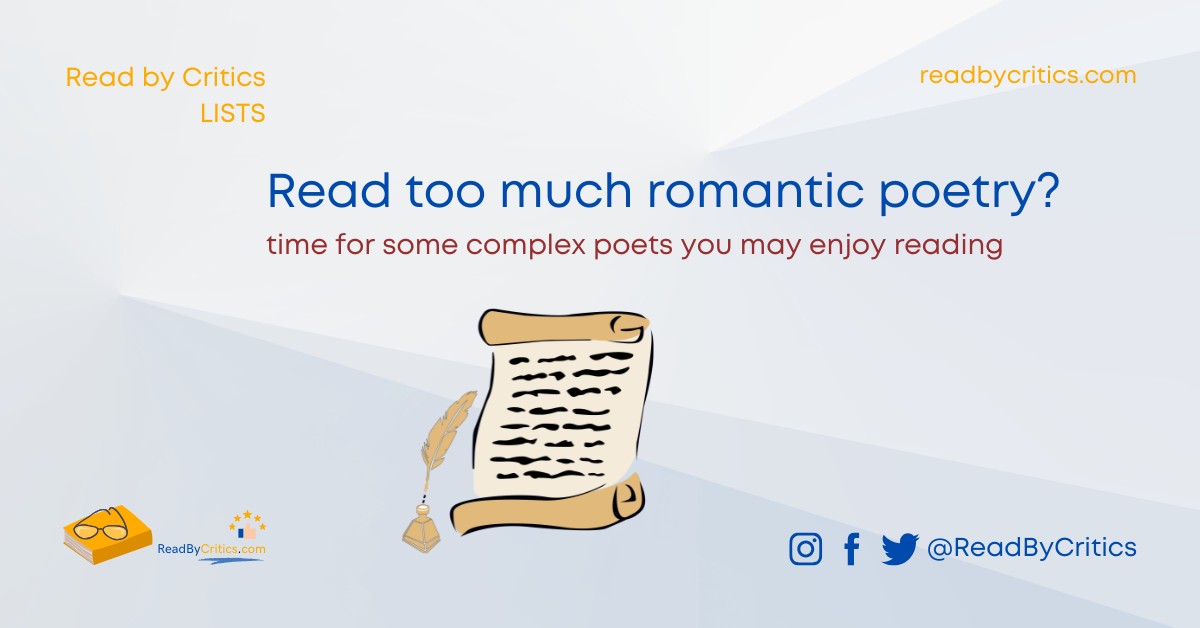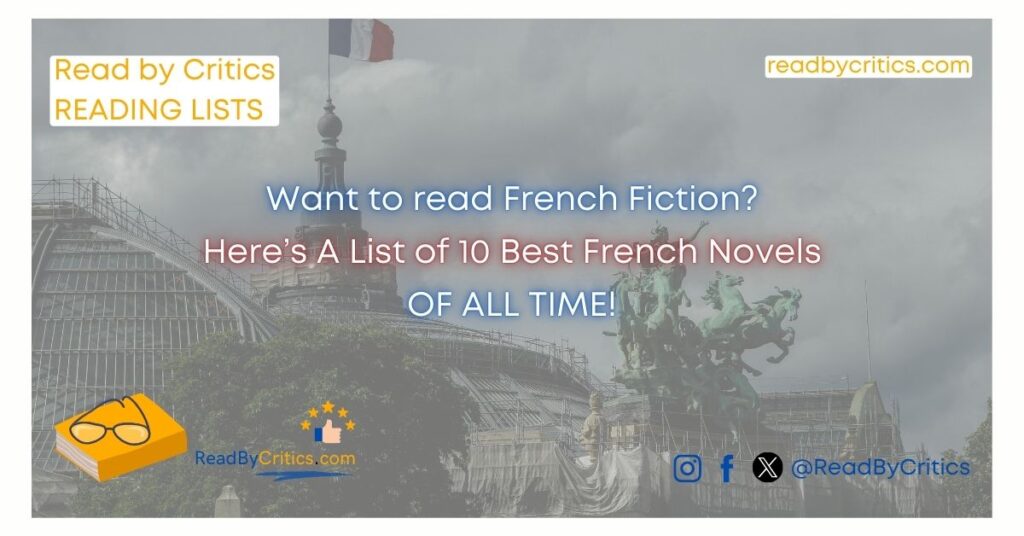Poetry is often described as the language of the soul, a medium that transcends borders, cultures, and time. Reading poetry from diverse backgrounds enriches our understanding of the human experience, offering fresh perspectives, unique voices, and a kaleidoscope of emotions. Whether it’s the melancholic beauty of Thomas Gray, the raw intensity of Sylvia Plath, or the spiritual depth of Sri Aurobindo, each poet brings something distinct to the table. By exploring poets from different eras, regions, and traditions, readers can uncover universal truths while appreciating the nuances of individual expression. This list celebrates poets from diverse backgrounds—ranging from the Romanticism of John Keats to the modernist genius of T.S. Eliot, and from the haunting verses of Emily Dickinson to the revolutionary spirit of Russian poetry. Together, they form a mosaic of poetic brilliance that promises to captivate, challenge, and inspire. So, grab a cup of tea, find a cosy corner, and let’s dive into the world of these extraordinary poets.
(Before you dive deep into the list I have prepared, I offer you some advice. Poetry is not to be understood all the time. Sometimes, you just need to admire the beauty of it, listen to the rhythm, and embrace it without asking for a plausible interpretation.)
1. T.S. Eliot (1888–1965)
T.S. Eliot is one of the most influential poets of the 20th century, known for his modernist masterpieces like The Waste Land and Four Quartets. His poetry is characterised by its complexity, rich symbolism, and exploration of existential themes. Eliot’s work often reflects the disillusionment of the post-World War I era, blending fragmented narratives with allusions to mythology, religion, and literature. His poem The Love Song of J. Alfred Prufrock is a brilliant example of his ability to capture the anxieties of modern life. Reading Eliot is like solving a puzzle—each line reveals new layers of meaning, making his work endlessly rewarding for those who enjoy intellectual challenges.
2. Charles Baudelaire (1821–1867)
Charles Baudelaire, the father of modern poetry, revolutionised the literary world with his collection Les Fleurs du Mal (The Flowers of Evil). His work is a blend of beauty and decadence, exploring themes of urban life, desire, and existential despair. Baudelaire’s use of vivid imagery and his ability to find beauty in the grotesque make his poetry both unsettling and mesmerising. Poems like Correspondences and The Albatross showcase his mastery of symbolism and his profound influence on later movements like Symbolism and Surrealism. If you’re looking for poetry that challenges conventional notions of beauty, Baudelaire is your go-to poet.
3. Sylvia Plath (1932–1963)
Sylvia Plath’s poetry is a raw and unflinching exploration of mental anguish, identity, and the female experience. Her confessional style, as seen in collections like Ariel and The Colossus, delves into her struggles with depression, relationships, and societal expectations. Poems like Daddy and Lady Lazarus are powerful and haunting, blending dark imagery with a fierce, almost defiant voice. Plath’s work resonates deeply with readers who appreciate poetry that is both deeply personal and universally relatable. Her ability to transform pain into art is nothing short of extraordinary.
4. Thomas Gray (1716–1771)
Thomas Gray is best known for his elegy Elegy Written in a Country Churchyard, a meditation on mortality, fame, and the quiet lives of ordinary people. Gray’s poetry is marked by its melancholic beauty and reflective tone, often exploring themes of loss and the passage of time. His work bridges the gap between the Neoclassical and Romantic eras, combining formal elegance with emotional depth. Gray’s poetry is perfect for readers who enjoy contemplative verses that linger in the mind long after the last line is read.
5. John Keats (1795–1821)
John Keats, a central figure of the Romantic movement, is celebrated for his sensuous imagery and exploration of beauty, nature, and mortality. Poems like Ode to a Nightingale, Ode on a Grecian Urn, and To Autumn are masterpieces of lyrical poetry, capturing the fleeting nature of life and the eternal allure of art. Keats’s concept of “negative capability”—the ability to embrace uncertainty and mystery—shines through his work, making it deeply immersive and thought-provoking. If you’re a fan of poetry that transports you to another world, Keats is a must-read.
6. Emily Dickinson (1830–1886)
Emily Dickinson’s poetry is a unique blend of simplicity and profundity. Known for her unconventional use of punctuation and capitalisation, Dickinson’s work explores themes of death, nature, love, and the human soul. Her short, enigmatic poems, such as Because I could not stop for Death and Hope is the thing with feathers, are packed with meaning and emotion. Dickinson’s ability to convey complex ideas in just a few lines is a testament to her genius. Her poetry is perfect for readers who enjoy brevity and depth in equal measure.
7. Sri Aurobindo (1872–1950)
Sri Aurobindo was not only a poet but also a philosopher, yogi, and spiritual leader. His epic poem Savitri is a monumental work that combines mythology, spirituality, and poetic brilliance. Aurobindo’s poetry is deeply philosophical, exploring themes of divine love, human evolution, and the quest for spiritual enlightenment. His work is ideal for readers who are drawn to poetry that transcends the mundane and delves into the metaphysical. Aurobindo’s verses are like a journey into the depths of the soul, offering both intellectual and spiritual nourishment.
8. Nissim Ezekiel (1924–2004)
Nissim Ezekiel, often regarded as the father of modern Indian English poetry, is known for his wit, irony, and keen observation of everyday life. His poems, such as Night of the Scorpion and The Patriot, reflect his ability to blend humour with profound insights into human nature and society. Ezekiel’s work is accessible yet thought-provoking, making it a great choice for readers who enjoy poetry that is both relatable and intellectually stimulating. His unique voice and perspective make him a standout figure in Indian literature.
9. Anna Akhmatova (1889–1966)
No list of poets would be complete without a nod to Russian literature, and Anna Akhmatova is one of its brightest stars. A leading figure of the Acmeist movement, Akhmatova’s poetry is known for its emotional intensity and clarity. Her works, such as Requiem and Poem Without a Hero, reflect her personal experiences of love, loss, and the horrors of Stalinist Russia. Akhmatova’s ability to capture the resilience of the human spirit in the face of adversity makes her poetry deeply moving and timeless. Her verses are a testament to the power of art to endure even in the darkest times.
So, there you have it—a poetic feast featuring some of the most brilliant minds from across the globe. From the modernist musings of T.S. Eliot to the spiritual depths of Sri Aurobindo, and from the raw honesty of Sylvia Plath to the timeless elegance of John Keats, this list offers something for every kind of poetry lover. Reading these poets is like embarking on a journey through different worlds, each with its unique landscapes, emotions, and insights.
And let’s be honest, who wouldn’t want to spend an afternoon with Emily Dickinson, pondering the mysteries of life, or share a laugh with Nissim Ezekiel over his witty takes on society? Poetry, after all, is not just about lofty ideas and profound emotions—it’s also about finding joy, humour, and connection in the written word.
So, whether you’re a seasoned poetry enthusiast or a curious beginner, this list is your ticket to a richer, more vibrant reading experience. Dive in, explore, and let these poets remind you why poetry is one of the most beautiful and enduring forms of human expression. And who knows? You might just find yourself quoting Keats at your next dinner party or scribbling Plath-inspired verses in your journal. Happy reading!
Alok Mishra for ReadByCritics




